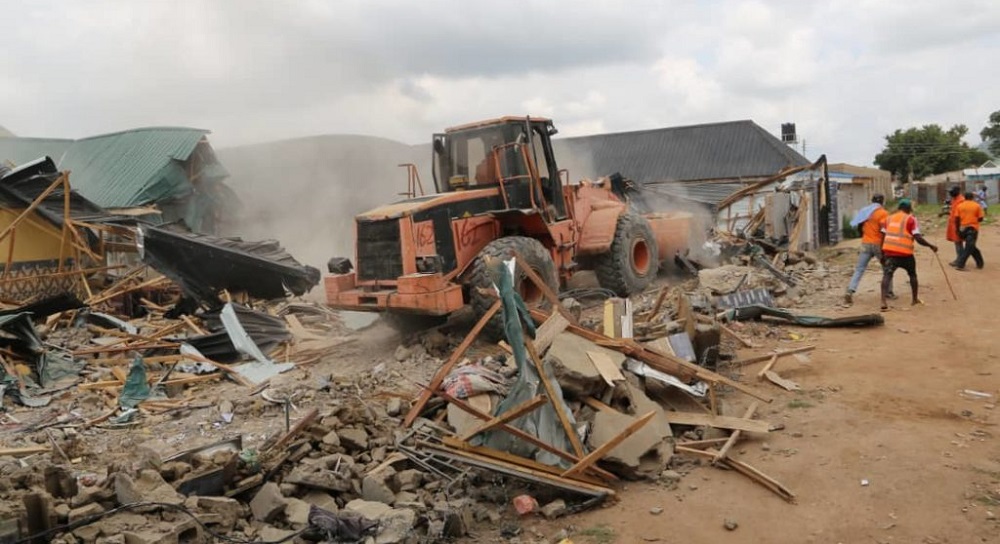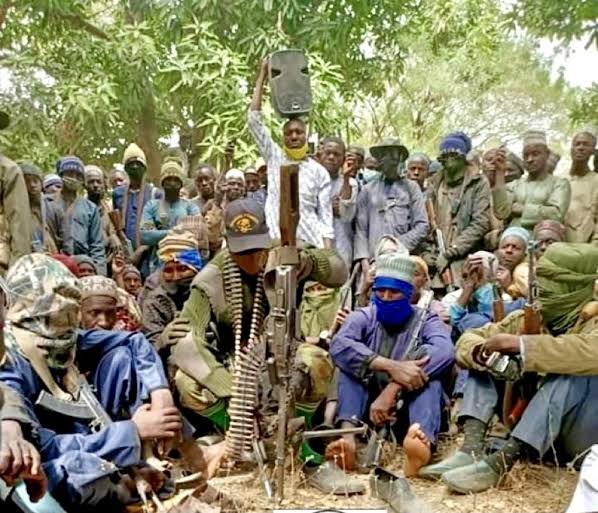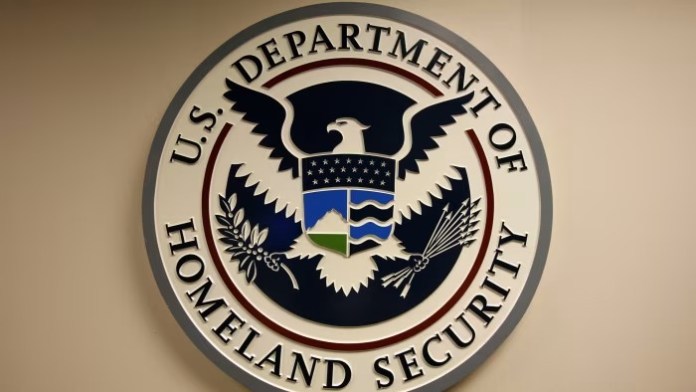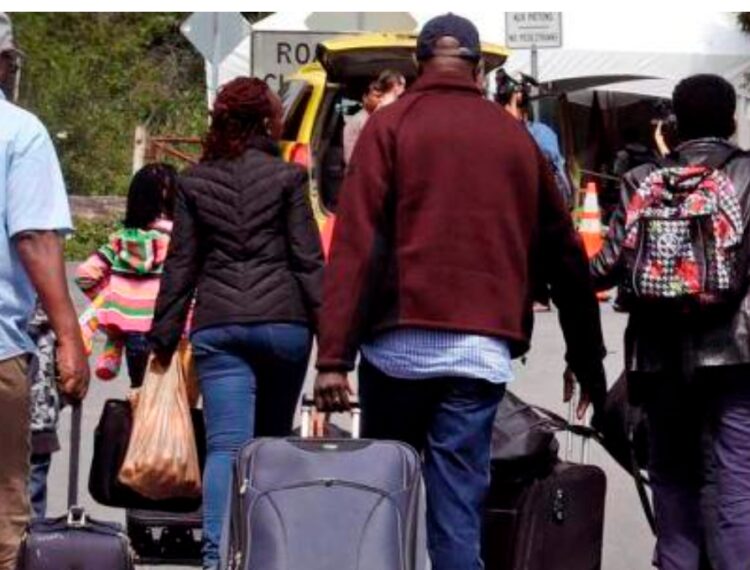News
Presidential fleet: 200 families displaced as NAF demolishes houses

More than 200 families who resided in Nuwalege, a rural community along the Nnamdi Azikiwe International Airport Road in Abuja, have been reportedly rendered homeless, following the demolition of their homes to accommodate an extension of the Presidential Air Fleet.
The demolition was carried out by the Federal Capital Development Authority, at the request of the Nigerian Air Force, The PUNCH learnt.
Subsequently, the displaced residents were forced to seek shelter in nearby communities, including Zamani, Sauka, Giri, Iddo, Gwagwalada, and others.
Details of the PAF project and its funding were not available but there are indications the project would commence soon as NAF personnel had been mobilised to the project site ahead of construction activities.
However, the affected families said they had not received compensation from the Nyesom Wike-led Federal Capital Territory Administration, the Nigeria Air Force and the Ministry of Aviation.
On Wednesday, one of our correspondents, who visited Nuwalege, previously inhabited by Abuja natives and other Nigerians, was prevented from accessing the community by heavily armed Air Force personnel guarding the site.
Last December, during a citizens’ engagement with the community, the Director of the FCT Department of Development Control, Muktar Galadima, said the Air Force had written to the FCT minister giving notice of the plan to relocate the residents, noting, however, that the status of compensation for the people was uncertain.
“We will discuss with the Air Force because obviously, discussions behind the scenes indicate that some forms of compensation were paid. We are going to conduct further investigation by engaging the FCT Department of Resettlement and Compensation as well as the Nigerian Air Force and find out if compensation has been paid, to whom, and when,” Galadima said.
Addressing journalists after the demolition in January, the director claimed the residents were given a two-month notice before the exercise, adding that his office had informed the Air Force of the administration’s policy on relocating indigenous communities.
“We informed the residents residing on the Nigeria Air Force land about the impending action and granted them a two-month window to pack their belongings.
“When the Air Force approached us, we told them about the FCTA policy on relocation and resettlement of indigenous communities. However, other non-indigenes are to be moved out of the location so that the Air Force can take over their land.
“The structures belonging to indigenes were left out because statutorily they have to be relocated and compensated, that’s why we are not touching their properties,” he stated.
Displaced residents
However, residents of the community told The PUNCH on Thursday that they were not notified of the demolition beforehand or paid any form of compensation, adding that no house was spared in the community during the demolition exercise.
An artisan, Wisdom James, disclosed that the residents were earlier informed the demolition would take place in another two years. However, the authorities came not long after to clear the community, he claimed.
“I live in Zamani now, but I’m from Nuwalege. They demolished our house in January. There was no information (prior to the demolition). The place they marked for demolition is not the place they demolished. They didn’t tell us when they would be coming.
“At a time, they told us they had shifted the demolition until the next two years. But in two days, they were there with bulldozers and started work. They didn’t pay us anything,” she told The PUNCH.
Speaking on the legal action by the residents, James said they each contributed between N2,500 and N10,000 to seek justice, adding that nothing had come of it.
“We made some contributions to take the issue to court. I paid N2,500. We were meeting in Sauka. After meeting about six times, there was nothing like that again. The money we gathered, we don’t know where they took it to, and we weren’t paid back.”
An indigene of the community, Obadiah Tanko, said the natives had lived there long before the Air Force base was built next to it, pointing out that some of their ancestors were buried in the site that now belonged to the NAF.
“I’ve been living in Nuwalege for 15 years, though I am an indigene. When they (FCDA) first came, they used beacons to mark some places. That was years ago. So, we took the issue to court, because before the (Air Force) base was built, we used to farm there. But they shifted us towards the river. Some of our grandfathers were buried where the base is now.
“They did an initial demolition in 2007. When they came, they told us only part of the place would be demolished. Before we knew it, we were told it would be the whole thing, although they didn’t demolish mine because I’m an indigene. Some people who are Bassa and Gbagyi are still there. None of the victims were told they would be paid anything, and none of them has received any payment,” he added.
Another former resident of the community, Folashade Olatunde, recounted her ordeal, stating that she slept in a classroom for two weeks after her home was demolished.
She eventually found an apartment in the Zamani community.
The mother of five lamented that her family was no longer staying together since the forceful eviction and demolition, adding that the FCDA destroyed more than 200 houses in Nuwalege.
Olatunde stated, “We left the community on January 15, 2024. They didn’t pay us any compensation, nothing at all. They just pursued everybody. I found money to rent a one-room apartment in Zamani after two weeks of sleeping in a primary school in the harsh cold.
“My family and I are separated, and I had to take some of our property back home. I have been staying here since then. I stay here with my husband and my two youngest children. My oldest son and the one immediately after him sleep in a nearby church, while my daughter is in Ekiti with my family. They scattered my family.
“The houses demolished are more than 200, every house was demolished. None was left standing. The leader of those of us who are Yoruba also lives down the road here in a self-contained apartment.
“We paid N20,000 and at another time N15,000 for a petition against the way the houses were demolished. They gave us a receipt with the promise to pay some money into our accounts and since then, nothing has happened.”
Another victim, Mrs Elizabeth Olushola, said her home and a block of four classrooms she built were demolished in the exercise, also stating that she had not been compensated by the government.
“I lived in Nuwalege for seven years. They did not tell us that they were going to demolish our community. But we saw them in 2023 when the FCDA came to mark some houses there.
“They said that was the only part they would demolish. Eventually, we saw that they had gone beyond where they marked, and they started demolishing everywhere and people had to start rushing out.
“There was no information, we just saw their bulldozers on January 15, 2024, and they started demolishing. I had a school there, a block of four classrooms; I also had a shop and everything was cleared off. We opened the school on January 9 and by January 15, they had demolished it. We had our own house, a two-bedroom flat, and a shop. They were both demolished too,” Olushola stated.
Asked if she was paid compensation, she added, “They didn’t give us any money, nobody even approached us. They didn’t resettle us here (new residence) either, we moved here and we rented an apartment here.
“The government should compensate us because I see this as suffering. Even to get the money for the rent, we had to borrow from one person or the other. Things are very difficult, I plead with the government to compensate us, I don’t know how true the resettlement plan is, but they should compensate us.”
A Point-of-Sale terminal operator and liquor store owner, Chukwuemeka Nwokoli, recounted that the initial information given was that the NAF Base along the Airport Road wanted to extend their fence by 100 metres.
Believing that his home would not be affected, Nwokoli remained in the community until January 15, when the bulldozers arrived to clear the buildings.
He said, “Last year in October, at about midnight, we started hearing people running around and they were shouting that the Air Force had come to demolish. And truly we saw their Hilux vehicles. People were scampering.
“Some days later some people came, they said they were from the FCDA and they came to mark the houses to be demolished. We heard from them that the Air Force wanted to extend their fence by 100m.
“People who were to be affected started moving. Community leaders and stakeholders held meetings and they said they were in court and told everyone to abide by the court order. The court order said nobody should build any new house so that the NAF won’t demolish it.”
Nwokoli added, “By the New Year, we saw bulldozers close to their fence. Some started packing immediately. We stayed behind believing nothing would happen. By January 14, a whole section of the community was gone. No sign, no notice that this was when the demolition would start. So, I had to rush here to this place (Zamani).”
Nwokoli explained that he did not join the suit instituted against the government.
“There was nothing like compensation, nobody talked to us even till now. Even the (community) chief was slapped by the soldiers. After the demolition, some people came together to collect funds to fight the case, but I said I was not interested, because of my belief that some would take advantage to extort people. They said they had a lawyer to help them. If there was going to be compensation, I don’t think the houses would have been demolished first.”
Mrs Josephine Johnson, a school teacher, who had lived in the community for over 10 years, shared a similar story, adding that the FCDA bulldozers cleared the house and she was not paid any compensation.
“I was living in the Nuwalege community, and I was teaching in a school there. I got married there, so I lived there for roughly 10 years. We had our own house, a two-bedroom flat. Before the demolition, there was no notice. We only noticed bulldozers in the community, and that was the only thing that gave us a sense of how serious they were.
“I have four kids and we moved here with my husband, living in a one-bedroom flat. Before we rented this place, we had to squat with a brother for some time. We weren’t given anything as compensation. There was no promise or guarantee. If there was, maybe I didn’t hear it,” she stated.
Titus Bitrus, also an artisan, who lived in the community for more than 16 years, bemoaned his current status as a squatter after his home was pulled down.
“I had my own house and even had tenants. Because of the demolition, I had to move my family to Kaduna to a land I acquired there. There was no notice of the demolition, we just woke up one morning and saw bulldozers.
“My house wasn’t part of those initially marked for demolition, but it was between some of them. So, when they did the demolition, my house also went with it. I now live here in Zamani with my brother,” he said.
NAF spokesperson, AVM Edward Gabkwet, urged the victims to take their case to the Ministry of Defence or the FCTA.
He noted that NAF doesn’t pay compensation for lands allocated to it by the Federal Government.
Gabkwet said, “Please, tell them to refer their matter to the Ministry of Defence or at best, the Federal Capital Territory Administration. NAF does not compensate for lands allocated to it by the FG.”
Presidency
When contacted, the Senior Special Assistant to President Bola Tinubu on Media and Publicity, Temitope Ajayi, directed our correspondent to the Minister of Aviation, Festus Keyamo, and the National Security Adviser, Nuhu Ribadu.
He said, “I don’t know about it and there is no way I can react to what I don’t know. I think you should talk to the Minister of Aviation or NSA. Those are the people that the presidential fleet is directly under their purview.
“Presidential air fleet is about national security, and that is under the purview of the NSA. And the other part is the Minister of Aviation.”
But Keyamo did not address the issue of compensation as he simply referred our correspondent to a report in which the FCT minister promised to compensate the Jiwa community whose land was acquired for the second runway for the Abuja airport.
The spokesperson for the Ministry of Defence, Henshaw Ogubike, didn’t pick his calls and was yet to respond to a message sent to his phone on the matter as at the time of filing this report.
Meanwhile, the FCT Director of Development Control, Galadima, could not be reached for comments on compensation for the displaced community as he did not respond to multiple phone calls, SMS and a WhatsApp message.
Our correspondent visited his office but was informed that he was in a meeting.
Also, the FCT Director of Resettlement and Compensation, Nasiru Sulaiman, asked for time to get the correct information on the issue.
Credit: PUNCH
News
Banditry:” I was chained for 32days while in their den, killed my wife as I watch-Nat’l Assembly DD narrates experience

A Deputy Director at the National Assembly Commission, Michael Adesiyan, has narrated his near-death experience in the hideout of bandits.
Adesiyan was abducted from his Chikakore residence in Kubwa, a suburb in the nation’s capital, alongside his wife on January 26th, 2025 before he was rescued on April 7.
The civil servant narrated his ordeal to journalists at National Counter-Terrorism Centre, Abuja, when fresh 60 kidnapped victims, who were rescued by the security forces were presented to the National Security Adviser, Nuhu Ribadu.
Adesiyan called on the federal government to immediately look for a way to disarm the criminals and educate them, and possibly reintegrate them back to the society, adding that “the bandits don’t know what they are doing.”
According to him, his abductors were between the ages of 17 and 20, and they were stark illiterate people who were not aware of what they were doing, and could not even count N1 million let alone hundreds of millions they were asking as ransom.
He specifically said they were chained for 32 days he spent in the abductors’ den, adding that they killed his wife in his presence.
“I want to thank the government for rescuing us. I was chained for 32 days. I want to advise that the government should find away to disarm or arrest them (bandits), instead of confronting them.
“They can send them to school. Some cannot even count one million. They are stark illiterates. They are young people of ages 17 and 21. They don’t know what they are doing.
“So if they can bring them out, if they want to learn work (apprenticeship), they can let them do, retrain them, reorientate them, that they can be useful to themselves.
“My advice is to, instead of killing them, arrest them, reorientate them. If you want to educate them, they can then work. That’s my advice,” he said.
When asked why they were in a rush to tell their family members to pay ransom, he said, “When they kill someone in your presence, you would give them anything they want.
“For instance, they killed my wife in my presence. If they request your head in that situation, you will give it to them.”
Earlier, while giving a breakdown, the Coordinator, National Counter-Terrorism Centre, Maj. Gen Adamu Laka said the victims comprising 35 males and 25 females, were rescued on Monday April 7, by troops of 1 Division of the Nigerian Army, in a coordinated operation supported by other security and intelligence agencies.
News
US revokes more than 500 foreign student visas

No fewer than 500 foreign students have had their US visas revoked in recent weeks, as Donald Trump’s administration doubles down on its crackdown on universities.
Nafsa, a network of universities and individuals engaged in international education and exchanges, told the Financial Times on Tuesday it had identified 500 visa revocations by compiling reports from higher education institutions across the US.
“This is uncharted territory on so many levels,” Fanta Aw, chief executive of Nafsa said. “It’s at an unprecedented level and it’s quite concerning because there is a lack of clarity which is creating anxiety.”
The Department of Homeland Security and the Department of State are implementing a wave of actions against university students across the country. Institutions are often unaware that their students have been targeted so cannot easily track their cases or offer support.
The state department’s visa revocations require students to leave the US and reapply for visas after fresh scrutiny. Separately, the homeland security department has triggered “status termination”, Aw said. In both cases, she added, the processes for appeal were unclear.
“There will be a tsunami of legal cases coming,” she warned.
Multiple reports have arisen of foreign students and university employees being taken to detention centres and subsequently facing deportation.
A number of universities have issued warnings to students and faculty against travelling abroad for fear of arbitrary questioning or detention on returning to the US.
Aw said reports of visa revocations had spiralled from students at elite universities — including Stanford, Harvard and Columbia — to a far wider range of higher education institutions across the country. They targeted many different nationalities for a variety of reasons, including for traffic violations.
Since Trump’s election, a growing number of US-based faculty have sought jobs elsewhere, and increasing numbers of high school and college students are applying to universities abroad.
The Central European University in Vienna on Tuesday said US applicants for its programmes in the upcoming academic year had jumped one-quarter, while the University of Toronto reported a “meaningful” rise compared to past years.
On Monday, 16 associations of US universities called for a briefing from the homeland security and state departments, after uncoordinated orders from the authorities requested students to “self-deport”.
The group said the orders contained “no additional information about how to appeal this decision or verification to ensure that mistakes are not being made in identifying these individuals”.
The association warned of the implications for the country given the 1mn international students attending US colleges and universities, who contributed an estimated $43.8bn to the economy, created 375,000 domestic jobs and contributed “to institutions’ intellectual vibrancy and the global literacy of domestic students”.
The homeland security department did not reply to a request to comment.
News
Japa: Nigeria loses $366m as 16,000 doctors move abroad

The Coordinating Minister of Health and Social Welfare, Prof Muhammad Pate said over 16,000 Nigerian doctors have left the country in the last five to seven years to seek greener pastures in other countries.
Prof Pate also said the doctor-to-population ratio is now 3.9 per 10,000 in the country, while the estimated cost of training one doctor exceeds $21,000.
This was as he lamented that nurses and midwives who left have also thinned the number of healthcare workers in the country.
The minister disclosed this at the seventh annual capacity building workshop of the Association of Medical Councils of Africa in Abuja on Tuesday with the theme, “Integrated healthcare regulation and leadership in building resilient health systems.”
According to him, an increasing number of Nigeria’s talented healthcare professionals aspire to work in other countries, driven by factors such as economic opportunity, better working conditions, more advanced training, and superior research environments abroad.
He said the migration of health professionals from developing countries is not new, but it has accelerated in recent years.
“In Nigeria alone, over 16,000 doctors are estimated to have left the country in the last five to seven years, with thousands more leaving in just the past few years. Nurses and midwives have also thinned in numbers. The doctor-to-population ratio now stands at around 3.9 per 10,000—well below the suggested global minimum.
“But this trend is not just about people leaving. It represents a fiscal loss.
The estimated cost of training one doctor exceeds $21,000—a figure that reflects the magnitude of public financing walking out of our countries. It deeply affects our health systems—leaving many of our rural communities critically underserved.”
He, however, emphasised that the phenomenon offers an opportunity to rethink and reshape the policies, to manage the valuable health workforce in ways that benefit our countries first and foremost.
“In Nigeria, guided by the vision of President Bola Ahmed Tinubu, who was appointed by African Heads of State as the AU’s Continental Champion for Human Resources for Health and Community Health Delivery—we are pursuing a new direction. His vision is that Nigeria becomes a prosperous, people-oriented country, contributing to a peaceful and thriving continent. Not a standalone Nigeria, but a Nigeria that is interlinked with all our neighbours and sister countries. Under the Renewed Hope Agenda, and within the framework of the Nigeria Health Sector Renewal Investment Initiative, we have embraced a new path—combining strategic realism with visionary ambition.
“The National Policy on Health Workforce Migration is a cornerstone of this path. It is designed to address health workforce migration with dignity—dignity for health workers, for the country, and for the profession. It is data-driven, evidence-guided, and signals a clear direction. This is not a restrictive policy, nor is it one born out of resignation. We understand that the global health workforce shortage is at 18 million, and countries in the Global North face their own human resource crises due to demography and other factors. But our response is based on stewardship—balancing the rights of health professionals to seek opportunities abroad with our duty to protect the integrity and viability of our national health system.
“The objectives are clear. To retain and motivate health workers currently serving in Nigeria—thousands of whom work under difficult conditions; to establish ethical norms and explore bilateral frameworks for recruitment, aiming to correct global asymmetries; to expand training capacity—not only for domestic needs, but to contribute to global workforce needs, to enable structured reintegration for the thousands of Nigerian professionals abroad; and to strengthen governance, improve regulatory coordination, and build real-time data systems.”
He urged Africa to lead in forging a new global compact on health workforce mobility—anchored in pan-African training and accreditation standards; shared planning tools, evidence, and data; continental negotiating platforms with destination countries; and sustained investments in the people who care for our people.
The President of AMCOA, Prof Joel Okullo, stressed the importance of collaboration among African countries to tackle healthcare challenges and improve regulation and leadership across the continent.
He expressed the belief that the outcome of the workshop would produce actionable strategies to improve healthcare services across Africa.
“This year’s theme highlights our commitment to tackling the diverse array of challenges within the health regulatory landscape. It seeks to empower AMCOA members and associate members with the wisdom and skills needed for informed strategic and operational decisions in the coming year.
“In this intricate regulatory tapestry, our discussions will illuminate strategies and insights that will bolster regulators’ capabilities. Our focus will revolve around managing health workforce mobility, improving credentialing and information data management systems
“Let us embark on this journey with enthusiasm and a shared sense of purpose. Our collaborative efforts today and over the next few days will lay the groundwork for transformative changes that will resonate across the healthcare landscape of Africa,” he noted.
The Registrar of the Medical and Dental Council of Nigeria, Dr Fatima Kyari, while welcoming participants to the event, noted that it was Nigeria’s first AMCOA workshop while commending the alignment of leadership towards the shared goal of patient safety.
The Board Chairperson of MDCN, Prof Afolabi Lesi highlighted the need for healthcare regulators to uphold global standards while adapting to local contexts.
Lesi, who is also the Chairman of the Local Organizing Committee for the workshop addressed the challenges of fragmented professional relationships that hinder implementation and compromise patient care.
“The reality is that while we have committed and clear directions at the level of governance, implementation of actions is bedeviled by the fractioned and fractious relationship among health workers who ought to be working as a team, with the patient (well-being and safety) as the primary focus of all our actions,” he said.
Photo caption: Members of AMCOA; the Registrar of MDCN, Dr Fatima Kyari; the Board Chairperson of MDCN, Prof Afolabi Lesi; the Coordinating Minister of Health and Social Welfare, Prof Muhammad Pate; the Minister of State of Humanitarian Affairs and Poverty Reduction, Dr Yusuf Sununu; and other AMCOA members.
-

 News19 hours ago
News19 hours agoOERAF held memorial lecture on conflict resolution, security/safety of community in Nigeria
-

 News5 hours ago
News5 hours agoUS revokes more than 500 foreign student visas
-

 News11 hours ago
News11 hours agoBandits have seized control of 64 communities in Plateau – Gov Muftwang
-

 News7 hours ago
News7 hours agoIbas picks administrators for 23 Rivers LGs(SEE list)
-

 News19 hours ago
News19 hours agoHoR Minority Caucus decries killings in Plateau, Benue states, urges immediate presidential decisive actions
-

 Economy11 hours ago
Economy11 hours agoMobile Money transactions hit $1.68trn in one year
-

 News11 hours ago
News11 hours agoAir Peace unveils new process for boarding passengers
-

 Metro7 hours ago
Metro7 hours agoINSECURITY! Gunmen Attack Abuja-Bound GUO Bus, Passengers Injured





